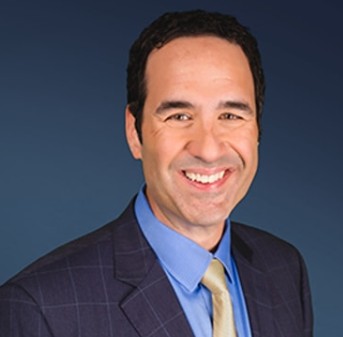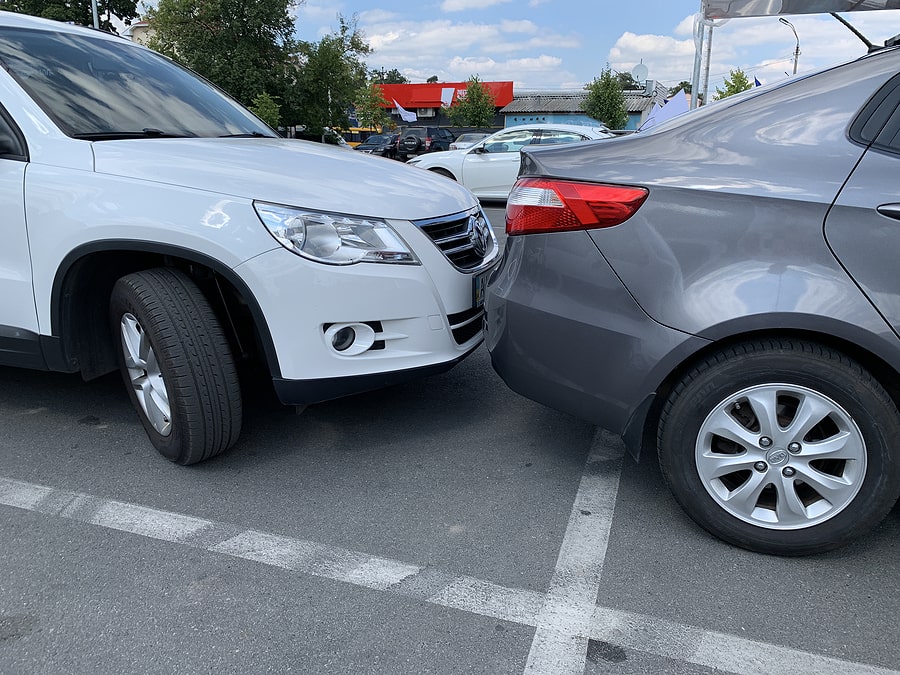Truck accidents are serious matters because of the size of trucks. Following such an accident, insurance companies will likely offer you a low initial settlement in the hopes that you will accept and close your claim. Always remember, insurance companies are in business to make a profit. Your injury and other claims cut into their bottom line.
Injuries sustained in truck accidents are often more serious than injuries that result from accidents involving passenger cars or other small vehicles.
For 10 years, Texas experienced an average of 504 fatalities in crashes with large trucks every year, according to the Federal Motor Carrier Safety Administration (FMCSA). Throughout the United States, 4,761 people were killed in accidents involving large trucks. Nearly 11 percent of those fatalities occurred in Texas, and the number of fatal crashes with large trucks increases every year.
How a Truck Accident Lawyer Can Help You
If you sustained an injury in a truck accident, speak to an attorney regarding your eligibility to seek compensation. During your initial case evaluation, your lawyer may discuss several things with you to get a better handle on your specific circumstances. Some questions that a truck crash attorney might ask about your truck accident include:
- What are your injuries?
- Did a relative die in the accident?
- How much damage did the accident cause to your vehicle and personal items in your vehicle? If the accident was in front of your home, we will want to know about any damage done to your yard or your home; trucks have been known to go off the road and right into a person’s house.
- Did the police show up and, if so, did you provide the police with a statement?
- Did the police arrest the truck driver or issue the driver a citation?
- Did you seek medical treatment? If so are you still getting medical treatment?
- Do you think you will need ongoing treatment, including additional surgeries, physical therapy, occupational therapy, or psychological therapy?
- How much work did you miss because of your injuries?
- Are you expected to be out of work for a while?
- Do you have residual effects from your injuries?
- Do you have an underlying condition, such as diabetes, or a lowered immune system that might prevent your injuries from healing in the average time it takes for a specific injury to heal?
- Have you been impaired long term or permanently?
- Are you still experiencing a lot of pain from your injuries, even if those injuries have healed?
- Do you remember what happened right before the accident?
The answers to these questions will help your legal team better analyze your injuries and determine whether you should seek additional damages.
What If I Was Partially Responsible for the Accident?
Never admit fault, even partial fault for an accident, even if you are the driver that receives the citation. If you are partially at fault, you may still be able to collect partial damages. However, if you admit fault or say something that leads officials to believe that you were at fault, it may prove difficult, if not impossible, to receive compensation. The defendant’s insurance company and his or her attorneys will use what you say against you in an attempt to avoid paying your medical costs and other damages to which you may be entitled to.
When you speak to your insurance company, or if the defendant’s insurance company contacts you, you should give them your name and the location of the accident, and then tell the insurance company that your attorney will contact them. You should also get their contact information if you did collect that at the scene of the accident.
Injuries You May Suffer From a Truck Accident
Because of the size and weight of large trucks, accident injuries are often catastrophic. Injuries you may suffer in a truck accident include:
- Bruises, cuts, scrapes, and abrasions. These usually heal rather quickly, but they can become infected. If you have an underlying issue that prevents this type of injury from healing quickly, you face a higher risk of infection. Underlying diseases that can cause problems with healing include diabetes, cancer, and immune system diseases. Also, if you are on a chemo regimen that depletes your white cell count, injuries may take longer to heal. Even with these minor injuries, it is important to tell your attorney if you are suffering from an underlying disease or taking a medication that could delay healing.
- Strains, sprains, and pulled muscles. Generally, these heal within a few weeks. However, you may need surgery if a pulled muscle is serious enough. If you do need surgery, you will need to nurse that limb back to proper health and may need physical therapy to build the muscle back up once it heals from surgery.
- Broken bones. You may have a simple fracture or a compound fracture. A compound fracture breaks the skin and usually requires surgery. As with other open wounds, the site may become infected or take longer to heal because of underlying issues.
- Back, neck and spine injuries. These types of injuries are usually catastrophic and some are even long-term or permanent.
- Head injuries. These are also usually catastrophic. Head injuries may cause epilepsy and increase the risk of Parkinson’s disease and Alzheimer’s disease down the road. Concussions have also been linked to chronic traumatic encephalopathy (CTE) later in life.
Driving to Avoid a Truck Accident
Truck drivers are required to abide by federal and state regulations for hours on duty, how many hours they are allowed to drive before taking a break, and other regulations meant to keep the public safe. However, some drivers—or the companies that employ the drivers—ignore these rules and regulations, though it is becoming more difficult to avoid compliance because electronic logging devices are now required for most drivers.
When you are driving, always be mindful of big trucks. Remember, that because of their size and weight, especially when loaded, they take much longer to stop. They also take much wider turns. If you are driving around trucks, keep these tips in mind:
- Never pass a tractor-trailer on the right, especially if the truck is turning right.
- When passing on the highway, make sure you can see the truck in your rearview mirror before you merge in front of the truck. Keep in mind that if you use your passenger door mirror, that truck is closer to you than it appears, and you risk getting rear-ended.
- Never cut off a truck to avoid missing your exit. Trucks cannot stop as fast as passenger cars. If you are close enough to cause the trucker to lock up its brakes, it will probably hit you and may even jackknife the trailer, which could cause injuries to additional motorists.
- If you are waiting at a red light and a truck needs to turn into the road that you are on, it could hit you if you are too far forward. In most cases, cities and towns put the white stop line some distance before the intersection if truckers often frequent that intersection. Never pull up past the white line.
- If a trucker needs to turn into the road that you are on, and you can safely back up to give the trucker plenty of room to make that wide turn, you should do so. Always check your rearview mirror before backing up to ensure that no one is behind you or coming up on your rear.
- If the weather is windy, try to avoid passing trucks on high bridges. Often the state or county will close high bridges to truck traffic and even passenger vehicle traffic if the winds are too high. It is easy for a side wind to blow a truck over, even if it’s a box truck that’s not hauling a trailer.
- If a trucker seems to be having trouble staying in his own lane because of the wind, because the driver is tired or distracted, do not pass the truck. Rather, stay well behind the truck. Otherwise, the driver may sideswipe you as you’re passing the truck.
- When following a truck, especially a tractor-trailer, stay far enough back so that you can’t see the truck’s door mirrors. If you cannot see the mirrors, the truck driver cannot see you.
- Never follow a truck too closely, especially on a hill. If the truck is going slowly, it is most likely because it is hauling a heavy load and cannot go any faster up the hill. Instead, pass the truck when it’s safe to do so.
Always keep your distance from truck drivers, especially in inclement weather. Never assume that because a truck driver is a professional that he or she will do the right thing. If you pay attention to what is going on around you while you are driving near trucks, you are more likely to avoid an accident.
Trucks and Maintenance
You can’t always avoid accidents. Sometimes, things happen that are sudden and unpredictable, such as tire blowouts. That piece of rubber coming at you can do a lot of damage to your vehicle and will probably cause you to wreck. Furthermore, don’t think that you cannot recover compensation because of a blown tire. Trucking companies and drivers are held to high maintenance regulations, and if the trucks are not properly maintained, you can likely hold the company, owner, driver, or even the cargo distributor liable for maintenance issues that cause accidents. Other maintenance issues may include:
- Large trucks often use recaps because they are cheaper. If a recap comes apart, the rubber may cause you to wreck if it flies at your vehicle or if it’s lying in the road.
- The air brake system must also be well-maintained. An old hose that breaks means the truck won’t have any brakes and could ram into the back of you or even go off the road and cause damage to buildings and people inside those buildings.
- Truckers and their employers should check a truck’s brakes, suspension, and steering components before any long drive; these parts should always be kept in good condition.
Truckers have an inspection list that they must go through each time they go out on the road. Often, Department of Transportation inspectors travel the roads and will pull trucks over to inspect them at random. These officials can cite truckers for not keeping proper logbooks if they are still using manual logs, for having broken lights, cracked mirrors, worn tires, and other issues that may lead to accidents.
As you’re driving with trucks, take notice of anything that seems off, such as a tire that wobbles or a piece of rubber that slaps the roadway. The trailer should follow directly behind the truck. If you see anything that does not look right, keep away from the truck.
Damages Involved in Truck Accident Cases
If you’ve been injured in a truck accident, you should seek the following damages:
- Medical expenses
- Future medical expenses
- Lost wages
- Future lost wages
- Reimbursement for the repair or replacement of personal property
- Pain and suffering
- Loss of companionship
- Loss of consortium
- Wrongful death
- Punitive damages
Punitive damages are only awarded when the defendant’s actions are grossly negligent, such as driving under the influence or purposefully not keeping trucks maintained. Punitive damages are meant to serve as a punishment for the defendant and hopefully works as a deterrent for the actions that caused your injuries or the death of your loved one.
 Contact a Truck Accident Attorney for More Information
Contact a Truck Accident Attorney for More Information
If you have been injured or lost a loved one in a truck accident, contact a truck crash lawyer to get answers to any remaining questions or concerns. Most personal injury lawyers will offer a free consultation, and you pay nothing unless they help win your claim.






